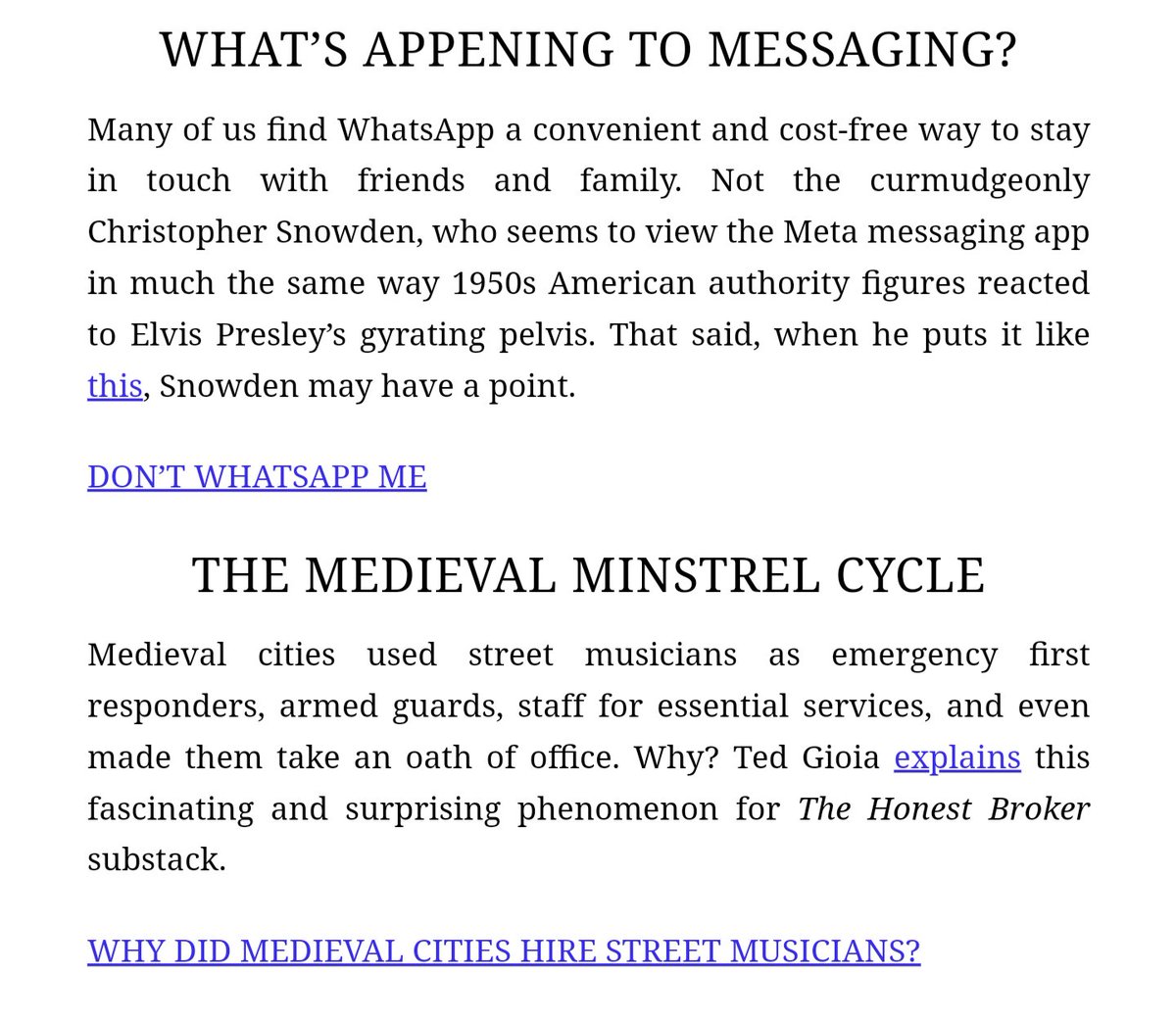This week's issue of #BritanniQ has landed in people's email inboxes. Didn't receive it? Follow the link below to get it every Monday free of charge. What did you miss out on this week? We started, of course, with #BorisJohnson's resignation... [1/n]
bournbrookmag.com/britanniq
bournbrookmag.com/britanniq
...@TomMcTague argued that #Johnson might suffer from Phaeton Complex, and ultimately achieved nothing apart from one big thing. The achievement of nothing infuriated @arisroussinos, who argued in a brilliant essay that this, rather than his sleaze, was his main...[2/n] 

...crime. Finally @sullydish said Johnson was useless, but, far from being the avatar for a right wing racist takeover (as many on the hysterical left argue), he actually prevented one. #BritanniQ also guided people to a brilliant @unherd podcast, with @freddiesayers... [3/n] 

...@Fox_Claire, @Will___lloyd and @arisroussinos discussed not the gossip surrounding the #BorisOut moment, but its place in the mega geopolitical, economic and social trends shaking the nation.
@BDSixsmith pleaded with God to save us from Tom Tugendhat, and a certain... [4/n]
@BDSixsmith pleaded with God to save us from Tom Tugendhat, and a certain... [4/n]

...@admcollingwood argued that leadership elections play a crucial role in blocking the creation of a genuinely conservative political voice in Britain while running a disdainful eye over the contenders.
We also asked, is Britain defended? The answer, from @simonakam... [5/n]
We also asked, is Britain defended? The answer, from @simonakam... [5/n]

...@James_P_Snell, @RUSI_org and @WarOnTheRocks was, given the changes in the nature of warfare and the specifics of the British Armed Forces, probably not.
We recommended a wonderful essay by Paul Kingsnorth for @unherd about how the left and big businesses ended up...[6/n]
We recommended a wonderful essay by Paul Kingsnorth for @unherd about how the left and big businesses ended up...[6/n]

...in bed together, and then looked at the late Shinzo Abe's legacy with two of the most capacious minds in the public intellectual sphere today, @adam_tooze and @ELuttwak. Both offered invaluable detail, breath and context to the former Japanese PM's politics.
Moving...[7/n]
Moving...[7/n]

...on, we took a dispiriting look at education with essays from @Im1776_ and @LD_Sceptics. We then suggested an interesting, low cost solution, based on @ATabarrok's review of a Kenyan study for @MargRev. No doubt the teaching unions would hate it. We rounded off the week...[8/n] 

...with a wonderfully curmudgeonly (and uncomfortably correct) essay from @cjsnowdon about his hatred of WhatsApp, and a look at why medieval cities hired musicians as first responders, armed guards and essential workers with @tedgioia.
Finally, we had a little...[9/n]
Finally, we had a little...[9/n]

...chicken soup for the patriot's soul.
BritanniQ has received wonderful feedback so far; every week, people have taken the time to write emails saying how much they enjoy it. If you would like it, free of charge, every Monday, follow the link below.
bournbrookmag.com/britanniq



BritanniQ has received wonderful feedback so far; every week, people have taken the time to write emails saying how much they enjoy it. If you would like it, free of charge, every Monday, follow the link below.
bournbrookmag.com/britanniq




• • •
Missing some Tweet in this thread? You can try to
force a refresh















